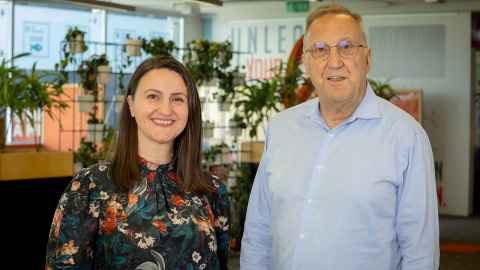Entrepreneurship education: a strategic investment for NZ
13 August 2025
Embedding entrepreneurship education across disciplines is critical to equip students with the skills and mindset to drive Aotearoa’s economic, social, and environmental prosperity, writes Darsel Keane.

New Zealand must confront a critical challenge: how to build an economy that is globally competitive, environmentally sustainable, and socially inclusive, delivering prosperity, resilience, and opportunity for all. A powerful part of the answer lies in how we develop, attract, and retain talent with the mindset and skills to shape the future, not just respond to it.
Entrepreneurship education is a strategic investment in that future. Too often misunderstood as simply teaching people how to start a business, it’s really about turning ideas into action, whether inside a start-up, a public institution, or a community organisation. It builds creativity, confidence, resilience, and the belief that “I can make a difference.”
Globally, countries like Denmark have recognised this potential. Its “ABC to PhD” strategy embeds entrepreneurship across all levels of education, supported by legislation, national performance contracts, and cross-ministerial coordination. The Foundation for Entrepreneurship serves as a national knowledge centre and funds teacher training, curriculum development, and school partnerships. Research links this model to increased innovation, employment, and high-growth firm creation. Students are equipped to act entrepreneurially, whether founding companies or driving change within existing systems.
New Zealand has yet to make this kind of coordinated commitment. Our talent is highly mobile. Graduates are choosing where in the world to build their lives. Entrepreneurship education can be a magnet, helping young people see meaningful futures here in Aotearoa. It signals that they have the power to shape their path and contribute to national prosperity.
At the University of Auckland, the Centre for Innovation and Entrepreneurship (CIE) is embedding this vision. While CIE supports students and staff through co-curricular and professional development offerings, one of its most significant developments is integrating entrepreneurship into the formal curriculum. Through the Hynds Entrepreneurial Teaching Fellows programme, established with generous support from the Hynds Foundation, we’ve partnered with academics across disciplines to make entrepreneurship relevant and accessible. Since 2018, over 13,000 students have benefited. Could this be a prototype for what’s possible nationwide?
In partnership with colleagues, in 2025 we continue to deliver entrepreneurship education across engineering, biomedicine, pharmacy, and business, while also expanding into new territory through two exciting curriculum integrations: an entrepreneurship course in Music and another in Global Studies, focused on social entrepreneurship and systems change. This expansion reflects a broader insight from our research, practise and experience: entrepreneurial thinking is most powerful when expressed in discipline-specific language and contexts. How entrepreneurship is understood and enacted can vary widely between disciplines; what it looks like in engineering may differ significantly from its expression in dance, architecture, or education, but the underlying mindset and capabilities remain universally valuable.
This progress has only been possible thanks to philanthropic support. To unlock the full potential of entrepreneurship education across Aotearoa, we now need government leadership. That means embedding entrepreneurship across the school system, ensuring impactful programmes, like the Young Enterprise Scheme, are available to all learners, regardless of location or background. It also means designing for a connected, lifelong learning journey, from early childhood through tertiary and beyond.
Entrepreneurship education won’t fix everything. But it gives young people the tools and mindset to lead New Zealand forward. And thanks to visionaries like the Hynds family, many already are.
Darsel Keane is the Director of the University of Auckland Business School’s Centre for Innovation and Entrepreneurship (CIE).
Questions? Contact CIE: cie@auckland.ac.nz
This article reflects the opinion of the author and not necessarily the views of Waipapa Taumata Rau University of Auckland.